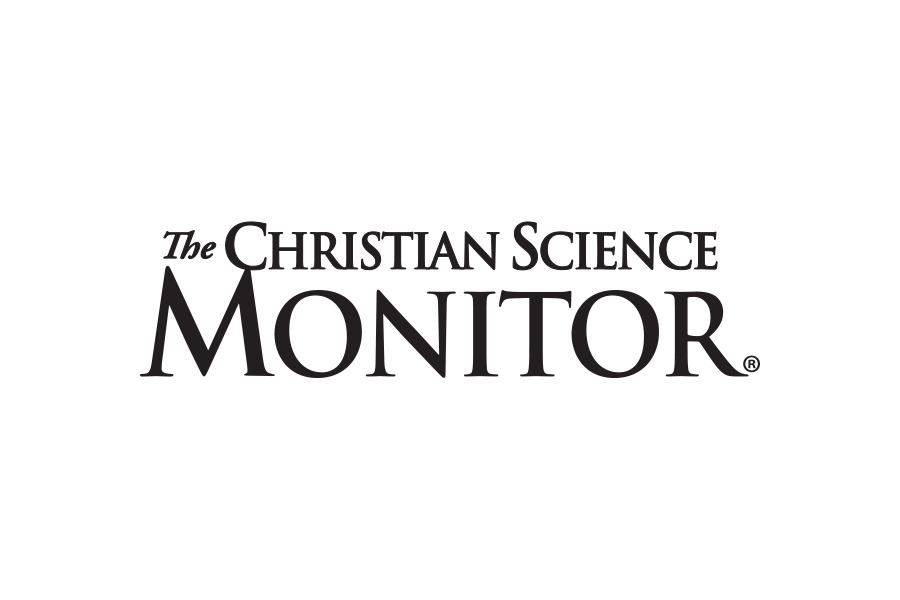“I will show you my faith by my works” (James 2:18, New King James Version). This is the “Golden Text” in this week’s Bible Lesson from the “Christian Science Quarterly,” and it is food for thought.
Read in isolation, it could sound like someone boasting about his or her personal faithfulness to God. But read in context, in the Scriptures, it’s far from that. It’s a timeless warning that it’s all too easy to fall into settling for faith without works. For instance, it’s possible to convince ourselves we are faithful because we pray wordy prayers and do rituals in the name of religion.
But is that enough? If we’re honest with ourselves, we’ll realize that faith without works – prayer without proof – doesn’t feel like enough.
If a higher faith is shown by works, this means we can check by our works whether or not our faith is oriented in the right direction. If it’s not, we can look to the example of Jesus for reorientation.
The master Christian demonstrated the acme of faith with works by consistently healing those who were sick and inspiring sinners’ reformation. He lived love moment by moment, in a culture where prominent religious edicts added burdens and limitations rather than freeing people from them.
One time when Jesus was in the company of Pharisees, the religious leaders of his day, there was a man present suffering from the dropsy (now called edema). The discrepancy between the two approaches to religion was delineated by what followed: Jesus healed the man, while the Pharisees sat there concerned about whether or not it was right to do so on the Sabbath, the religious day of rest.
The man’s restoration to health evidenced the impact of Jesus’ unshakable conviction of the spiritual fact of God’s goodness as the only power. The Pharisees proved that a ritualistic and argumentative approach to religion is obstructive rather than constructive.
Jesus, of course, didn’t need to prove that his faith was headed in the right direction. From his virgin birth, through his healing ministry, to his resurrection and ascension, his life defined that direction. He was the Exemplar or Way-shower – and echoing his healing works, even if only modestly, indicates we’re faithfully following Christ, the true idea of God.
According to the writings of Mary Baker Eddy, the discoverer of Christian Science, “The error of the ages is preaching without practice.
“The substance of all devotion is the reflection and demonstration of divine Love, healing sickness and destroying sin” (“Science and Health with Key to the Scriptures,” p. 241).
These are not works that boast of us to others. They are works that proclaim the all-power of God to everyone with a heart open to see it. We don’t heal solely to remove sickness and sin, but to affirm the majesty, might, and love of God as the All-in-all, in which there is neither sickness nor sin.
Key to rising beyond workless faith to these faithful works is humility. The prophet Isaiah connects this quality with feeling God’s presence: “Thus saith the high and lofty One that inhabiteth eternity, whose name is Holy; I dwell in the high and holy place, with him also that is of a contrite and humble spirit” (Isaiah 57:15).
Through humility we climb the mental heights that attain a healing altitude of thought. Healing happens as we let go of what we’re not and instead hold to what we truly are – spiritual rather than material, incorporeal rather than corporeal. We can deny the validity of any thoughts or actions that say that we or others are less than God’s ever-loved child. We can admit to ourselves that we’re God’s entirely spiritual offspring, divine Love’s reflection of itself.
Maybe that, too, sounds like boasting, but it isn’t. This is humility, to admit what’s true about ourselves and everyone else, that we are God’s works, His ever-wonderful sons and daughters. This wholly spiritual identity is truly ours, and to accept this is to meekly and mightily align our thoughts with divine Love and our real selfhood.
This nurtures the capacity to heal. As Science and Health says, “Whatever holds human thought in line with unselfed love, receives directly the divine power” (p. 192).
That unselfed love, our reflection of God’s love, does the work of healing and transforming us and others, proving that we are each God’s wonderful work, Love’s cherished child, His spiritual creation.
